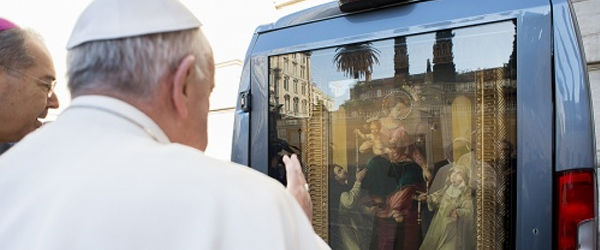Ten years after her 29-year-old son Ronald da Silva was murdered by a gang member, Agnes J. Gibboney still harbors great pain in her heart. But when she met the mother of a youth sentenced to life without parole, she decided to advocate for those teenagers sentenced to die in detention institutions.“She is human like I am, and as a mother you shouldn’t carry the shame of what your children do,” said Gibboney when asked what moved her to support the mother of an incarcerated, someone like the person who took her child’s life.She will be one of the speakers at “Responsibility, Rehabilitation & Restoration: A Symposium on Crime, Punishment and the Common Good in California,” to be held Aug. 3-4 at Loyola Marymount University.Sponsored by the California Catholic Conference, the event is a follow-up to a 2003 symposium, when more than 2,000 participants decided to take action on the U.S. bishops' pastoral "Responsibility, Rehabilitation and Restoration." It seeks to continue raising awareness of restorative justice as a better system for victims, offenders and the community at large, according to a statement posted on the CCC’s Web site.“The purpose of this statewide event is to convene those affected by the criminal justice system, from victims to offenders to criminal justice professionals to Church and public leaders from various faith perspectives,” the statement said. “We will gather to discuss how to transform society's response to crime from a paradigm of retribution and punishment toward one of rehabilitation, restoration and reconciliation. We will also focus on specific calls to actions for all these members of the community.” Gibboney, for example, now helps victims become survivors because “in that place you’re in control,” she said. “Otherwise you’re always hurting yourself and not moving on.”Soon after her son was shot in April 2002, Gibboney attended a Parents of Murdered Children support group. A year later she became the head of the group’s chapter in the Inland Empire, where she resides.Although admitting she has not forgiven her son’s murderer --- “because to forgive someone they have to ask for it” --- Gibboney admits she has “released him from her life.” And one day she would like to visit him to understand what happened and to see “if he had remorse for what he did.”At the upcoming symposium, she would like to encourage victims to have an open mind and heart. She tells victims: “Be true to yourself on a daily basis, don’t do what others say,” and “Be compassionate because everybody’s hurting.”With this attitude, she said, “one grows leaps and bounds and then you do and see things you never thought possible.”Like when she met Meina, the mother of a youth sentenced to life without parole (LWOP), at a support group meeting facilitated by the archdiocesan Office of Restorative Justice.“She was living her own little hell, so ashamed of what her son had done,” noted Gibboney. “Coming from my experience --- initially feeling anger and hate --- I empathized with her. She is dear to me.”Together, they have traveled to Sacramento to advocate for the approval of SB9, a proposed bill to review cases of those sentenced to LWOP while they were under the age of 18.All involved in or impacted by the state’s criminal justice system are invited to attend the symposium. Through the event, organizers also seek to strengthen local and state government connections and formalize a possible pastoral and policy agenda for the Catholic Church.In 1999, the CCC formed a working committee of religious and lay people, all experts in restorative justice, to expand its outreach to better serve the needs of all those impacted by crime.Training opportunities on restorative justice have been conducted across California since 2008 aligned with the motto, “If crime is a wound, justice should be healing.”But the justice system has been “slow to grasp this new model,” according to CCC officials, “so the community is mobilizing to assume responsibility for all of its members, including crime victims and survivors, offenders, and the community as a whole.”For information and online registration to the conference, which will be presented in English with simultaneous translation to Spanish visit http://www.cacatholic.org/index.php/issues2/restorative-justice?layout=blog.{gallery width=100 height=100}gallery/2012/0727/symposium/{/gallery}

